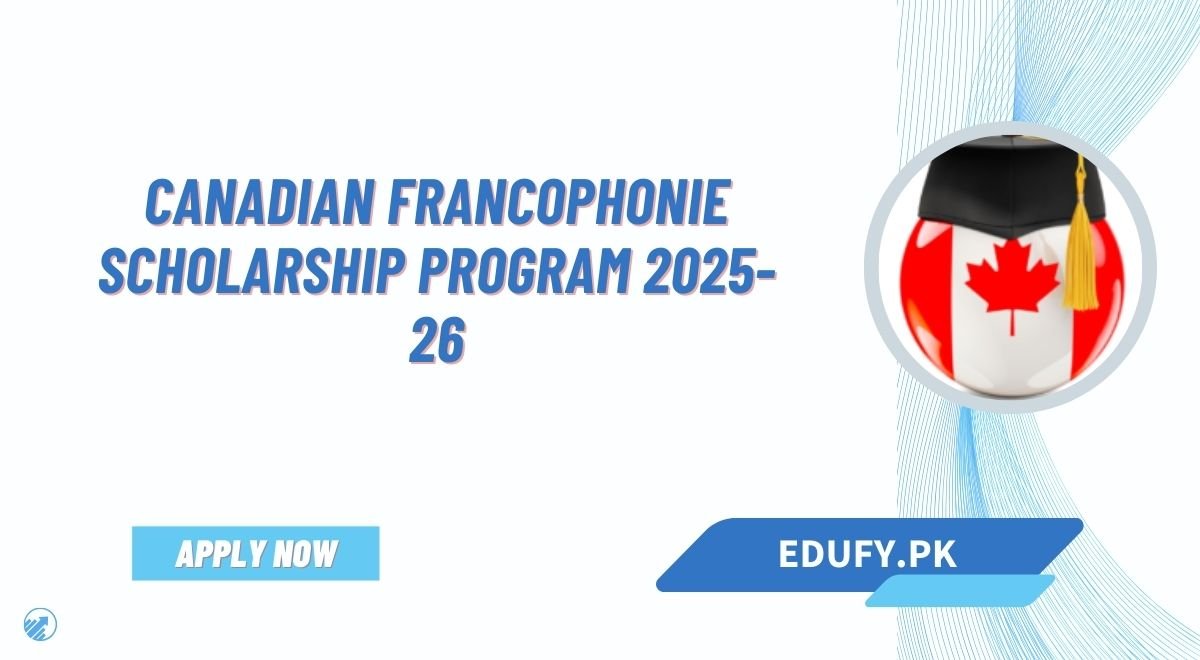Pursue your studies in Canada! Great news – the Canadian Francophonie Scholarship Program (CFSP) 2025-2026 is now open. This program provides an exceptional opportunity for students from developing nations of La Francophonie to enhance their skills and contribute to their countries’ growth. In this article, we will provide a detailed overview of the CFSP, including its benefits and the step-by-step application process.
What is the Canadian Francophonie Scholarship Program?
The Canadian Francophonie Scholarship Program (CFSP) is a fully funded initiative aimed at building organizational capacity in developing countries that are part of La Francophonie. The program offers fully funded scholarships for master’s and PhD studies in a wide range of fields, including business administration, engineering, health sciences, and more.
Financed entirely by the Government of Canada, the CFSP has been managed by a consortium led by the Canadian Bureau for International Education (CBIE) and the World University Service of Canada (WUSC) since January 2015. This partnership ensures that the program is effectively administered, allowing students from eligible countries to pursue higher education and vocational training in Canada.
Long-Term Objectives of the CFSP
The primary goal of the CFSP is to help developing countries by enhancing the skills of individuals who can contribute to their home institutions upon returning. The program aims to:
- Improve the skills of college and university personnel in education and research.
- Train trainers in technical and vocational education fields.
- Increase and strengthen the expertise of specialists and managers in both the public and private sectors.
Through these objectives, the CFSP aims to support the long-term development of Francophone nations by enhancing the capacity of institutions in priority areas.
Scholarship Summary
- Level of Study: Master’s/PhD
- Institution(s): Canadian Universities participating in the CFSP
- Study Location: Canada
- Program Duration: Up to 4 years
- Scholarship Deadline: Varies depending on the country
Available Fields of Study
The CFSP offers scholarships for a wide range of fields, ensuring that students from different academic backgrounds have access to the program. Fields include:
- Business Administration
- Engineering
- Communication
- Economics and Finance
- Environmental Sciences
- Health Sciences/Public Health
- Information and Communication Technology
- Project Management and Logistics
- Agriculture and Water Studies
- Pure and Applied Sciences
- Aerospace, Biomedical, Civil Engineering, and more
Scholarship Coverage
The Canadian Francophonie Scholarship Program provides recipients with comprehensive financial support. Each selected student receives an average annual stipend of $35,000. This amount covers the following:
- Tuition fees for the entire program.
- Living expenses, including accommodation, food, and transportation.
- Travel expenses to and from Canada at the beginning and end of the program.
This financial support ensures that students can focus on their studies without worrying about financial burdens.
Eligibility Criteria for CFSP 2025-26
To be eligible for the Canadian Francophonie Scholarship Program, applicants must meet specific criteria:
Language Requirements
- The primary language of instruction is French, so applicants must be proficient in French to qualify.
Eligible Countries
- The CFSP is open to applicants from various Francophone developing nations, including countries such as Egypt, Lebanon, Tunisia, Morocco, Djibouti, Mauritania, Comoros, and other African nations that are part of La Francophonie.
Educational Qualifications
- Master’s and PhD Programs: Candidates must be identified by their home institutions, which will conduct internal recruitment campaigns to select applicants who demonstrate strong potential to contribute to institutional development upon their return.
- Vocational Training: Candidates may also apply for technical and vocational training, depending on the priorities set by their home countries.
Exclusions
- Clinical training in fields such as pharmacy, medicine, and dentistry is not eligible under the CFSP.
Quota System
Each recipient country has a set quota, allowing them to prioritize specific areas of training based on their national needs.
Application Process for CFSP 2025-26
Applying for the Canadian Francophonie Scholarship Program involves several steps. Below is a detailed guide on how to apply:
Step 1: Gather Required Documents
Applicants need to prepare the following documents:
- Curriculum Vitae (CV): Ensure that your CV is up to date.
- Institutional or Individual Needs Questionnaire: This form is provided only to eligible applicants.
- Cover Letter: A letter explaining your motivation for applying this scholarship.
- Objectives and Goals Document: Outline how your studies will contribute to the development of your home country.
- Certified Copies of Diplomas and Transcripts: All academic records must be officially certified.
- Referral Forms: Letters of recommendation from academic or professional supervisors.
- Certified Copy of Passport and Birth Certificate: These documents are essential for verifying your identity.
Step 2: Submit Your Application
Once you have prepared all the required documents, submit them to the designated application center in your country. Each country has specific institutions and offices responsible for processing CFSP applications. Ensure that you meet the deadline, as it varies depending on the country.
Step 3: Wait for Selection Results
After submitting your application, it will be reviewed as part of the quota system established for each country. The selection process is competitive, with priority given to candidates who demonstrate the greatest potential for strengthening their home institutions.
Key Notes for Applicants
- The CFSP offers a unique opportunity for Francophone students to enhance their skills in education, research, and technical training.
- Selected students are expected to return to their home countries after completing their studies to contribute to national development efforts.
- Since the application process is conducted through designated institutions in recipient countries, it is essential to stay informed about application deadlines and submission guidelines.








